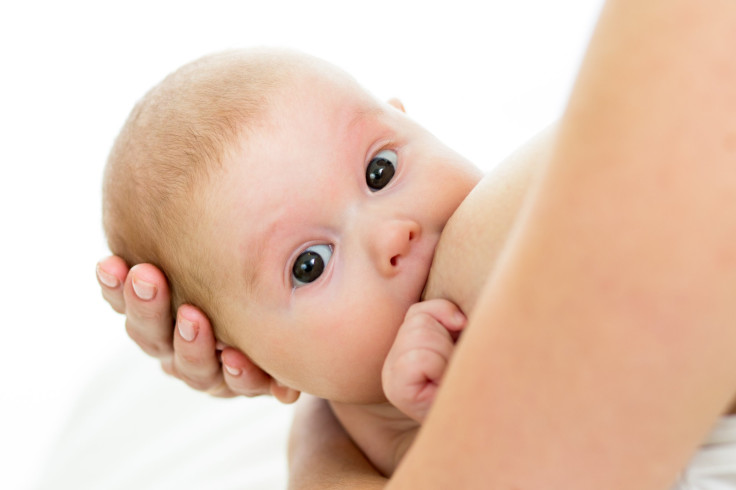Infants' Rotting Teeth Tied To Long-Term Breastfeeding: How Long Is Too Long?

As many as half of children breastfed past the age of 2 may experience tooth rot, say researchers at the University of California at San Francisco.
In a study of hundreds of low-income families in Brazil, Benjamin Chaffee says 40 percent of the children breastfeeding 6 to 24 months developed at least one cavity. However, 48 percent of those breastfed past 2 years of age developed a cavity in their baby teeth.
"The number one priority for the breastfeeding mother is to make sure that her child is getting optimal nutrition," Chaffee told Reuters, referring to the many health benefits associated with breastfeeding.
In the study, Chaffee and his colleagues analyzed the link between prolonged breastfeeding and dental problems among 458 children in Porto Alegre. During the next year, they visited the children at ages 6, 12, and 38 months with two trained dentists to conduct examinations. At the six-month followup, the researchers collected information about the baby’s nutrition, including the volume of breast milk consumed, among other liquids such as juice. The next round of home visits came as families celebrated their baby’s first birthdays, with diet expanded to include more than two-dozen foods, including fruits, vegetables, beans, meat, cookies, honey, and chocolate milk.
Although nearly half of the children in the study had consumed at least one prepared infant formula bottle by the age of 6 months, most of the babies continued to be breastfed by age 1. "Our study does not suggest that breastfeeding causes caries," Chaffee said. Rather, the study suggest that dental health should be one health consideration when considering whether to breastfeed past age 2.
In a report published last month, the researchers also speculated that the refined sugars of Western foods may combine with breast milk to cause tooth decay among those breast fed the longest and most often. Also, those who were breastfed more frequently — at, say, the expense of other liquids and solids — were more likely to develop tooth rot or a cavity.
But what causes the tooth rot? Experts say that although breast milk has some ability to cause tooth decay, bottle-feeding often disrupts the natural feeding process — as less bacteria-fighting saliva circulates through the mouth. Chaffee says parents might consult their pediatrician as their baby’s are toothing to help determine the best time for weaning.
Source: Chaffee, Benjamin W., Feldens, Carlos Alberto, Vitolo, Marcia Regina. Association of long-duration breastfeeding and dental caries estimated with marginal structural models. Annals of Epidemiology. 2014.



























